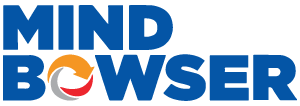In healthcare, permissions and functionalities within EHR systems are critical as they directly impact how healthcare teams access, manage, and share patient information. Permissions control who can view or edit specific data, while functionalities define what users can do within the system, such as scheduling, data entry, or analytics. For healthcare providers, these elements ensure that sensitive patient information is secure and that workflows remain efficient. A well-defined permissions structure and functional flexibility are key to supporting care delivery and compliance with data protection regulations, which is vital in healthcare environments.
Understanding the distinct permissions and EHR capabilities in Epic EHR, Cerner EHR, AthenaHealth EHR, and Meditech EHR is important for healthcare providers, as each EHR platform offers unique strengths and limitations. Epic and Cerner systems currently have 50% of the market share. While Epic is known for its extensive interoperability and customizable workflows, Cerner often emphasizes user-friendliness and integration with other clinical tools. Athena is known for its cloud-based model and ease of use in outpatient settings, while Meditech is recognized for its structured, cost-effective solutions aimed at smaller hospitals.
Knowing these differences is essential for healthcare teams to select and optimize an EHR system that aligns with their operational needs, ensuring both effective patient care and streamlined internal processes.
Let’s learn how Epic EHR, Cerner EHR, Athena EHR, and Meditech EHR differ in their EHR permissions and capabilities, impacting healthcare operations and data access.
EHR capabilities vary widely among systems like Epic EHR, Cerner EHR, Athena EHR, and Meditech EHR, especially in permissions and data access controls. Permissions in EHR platforms are vital for security, data privacy, and compliance, defining who can access patient information. Systems like Epic and Cerner offer customizable permissions, allowing administrators to assign specific access levels based on user roles, ensuring only authorized personnel handle sensitive data. This flexibility aligns with clinical workflows, supporting both privacy and operational efficiency.
Functionality differences across EHR platforms impact day-to-day healthcare operations. Epic and Cerner, for example, provide comprehensive workflow tools that enhance patient management, from appointment scheduling to visit documentation. Athena and Meditech meanwhile target different priorities, with Athena emphasizing billing and practice management features. Integration capabilities further distinguish these systems; Epic, for instance, is recognized for its strong compatibility with third-party applications, whereas other EHRs may offer more limited interoperability. Understanding these variations in functionality helps healthcare providers select an EHR that aligns best with their specific needs.
Related read: Cerner vs Epic: Choosing the Best Healthcare Solution for Your Business
Epic’s EHR capabilities provide a structured approach to data access through role-based permissions, allowing healthcare teams to assign access based on job functions. This method boosts privacy by restricting sensitive data access and includes configurable limits for external sharing, aligning with regulations.
Epic offers a robust patient engagement suite, enabling patients to view health records, manage appointments, and communicate with providers securely. Its data visualization tools simplify information interpretation for clinicians, and strong interoperability supports smooth data exchange across healthcare settings. However, organizations must navigate Epic’s complexity to ensure effective team adoption and usage.
Related read: Epic EHR Integration Strategies: Best Practices & Tips
Cerner’s EHR system offers a flexible approach to permissions, allowing healthcare organizations to set customizable user roles with specific access levels. This granular control supports secure data handling by enabling administrators to assign permissions based on job roles, ensuring users access the needed information. Cerner’s security includes audit trails to track user activities, support compliance, and spot unusual access patterns. In addition to these security layers, Cerner’s periodic security checks add an extra safeguard, helping healthcare organizations maintain a well-monitored digital environment.
Core functionalities within Cerner’s EHR focus on optimizing clinician workflows and supporting data-driven healthcare delivery. With population health management tools, Cerner helps clinicians identify and manage patient groups based on shared health needs, streamlining preventive care efforts. The platform encourages clinician collaboration through real-time data sharing and communication features.
Cerner’s mobile access enhances usability, keeping providers connected on-site or offsite. While its secure permission structure may add complexity, its adaptability and collaboration tools make it a solid choice for efficient, secure patient care.
Related read: Cerner EMR: How HealthConnect CoPilot Simplifies Cerner Integration
Athenahealth EHR designs its permissions framework to help small-to-midsized practices manage access effectively. Role-based assignments let users view or modify only the necessary information, protecting patient data. Its permissions model includes layers of access control, from clinical data to administrative functions, providing a clear way to monitor who accesses which records and actions. With a strong focus on data protection, Athenahealth EHR aligns with HIPAA requirements, making it a valuable choice for practices prioritizing patient confidentiality.
Athenahealth offers unique functionalities that cater to the needs of smaller practices. Its integrated telehealth capabilities support virtual consultations, which have become an essential service for many clinics. With built-in billing support, Athenahealth allows practices to handle payments directly through the EHR, which can help streamline workflows. These functionalities make Athenahealth a practical option for practices seeking an EHR with flexible access controls and features focused on efficient practice management.
Related read: Telehealth in Home Health Care: Enhancing Patient Outcomes Through Innovative Solutions
Meditech’s EHR system is designed with a structured permissions setup that supports department-specific access, allowing healthcare providers to grant or restrict information based on roles and responsibilities. This department-focused approach to permissions helps maintain patient privacy by limiting access to those who need specific data. With Meditech, administrators can assign user restrictions, ensuring sensitive information remains secure across departments. The platform facilitates secure data sharing between authorized users, promoting collaboration while protecting patient data within compliance standards.
Key functionalities in Meditech’s EHR include comprehensive patient records management, streamlined clinical documentation, and options for system customization. These capabilities allow healthcare organizations to organize patient data, ensure detailed record-keeping, and adapt certain system elements to align with their workflow needs. However, managing permissions in a large organization can pose challenges, especially as roles and access requirements evolve. Balancing data access with security often requires a careful setup, and Meditech’s structured approach can require periodic updates to accommodate shifts in staffing and patient care demands.
When comparing EHR capabilities, understanding how each platform handles permissions is crucial. Each EHR system offers unique access controls, data-sharing options, and security protocols to manage sensitive healthcare information effectively. Here’s a breakdown of how Epic, Cerner, Athena, and Meditech differ in these key areas:
When selecting an EHR, considering EHR capabilities like permissions and functionalities is essential for aligning with specific healthcare needs. Permissions affect how easily staff can access the required data while keeping sensitive information secure, which is critical for protecting patient privacy. Functionalities determine how effectively the EHR supports workflows, from appointment scheduling to medication tracking.
Evaluating each EHR capabilities strengths in permissions and functionalities can guide decision-makers in choosing the best fit for their practice size, specialty, and patient care goals. For example, large hospitals may benefit from Epic’s comprehensive permissions, while smaller clinics might find Athenahealth’s intuitive design better suited to their workflow needs.

Understanding the differences in EHR capabilities and permissions between Epic, Cerner, Athena, and Meditech is crucial for selecting the right EHR platform. Each system offers unique ways to manage user access, patient data handling, and functionality directly impacts clinical workflows, data security, and patient care. Comparing their approaches helps healthcare organizations find an EHR that best aligns with their operational needs and compliance requirements.
HealthConnect CoPilot simplifies the EHR selection process by helping healthcare organizations navigate these EHR capabilities effectively. By evaluating permissions, data integration, and functionality within each platform, HealthConnect CoPilot guides you toward the best EHR choice that supports your clinical goals and operational priorities.
Each platform offers unique features. Epic excels in large healthcare systems with advanced interoperability. Cerner provides robust population health management tools. AthenaHealth focuses on cloud-based solutions for smaller practices, while Meditech is known for affordability and usability in community hospitals.
Permissions depend on the platform’s architecture. Epic and Cerner allow granular user access control for larger organizations, while AthenaHealth and Meditech offer simplified access settings suited for smaller setups.
Epic EHR is widely regarded for its flexibility in customization for diverse workflows. Cerner EHR is also adaptable but may require more technical support. AthenaHealth EHR and Meditech EHR focus on straightforward implementations with fewer customization options.
Epic uses Care Everywhere for data exchange, Cerner relies on its CommonWell Health Alliance membership, AthenaHealth offers cloud-based connectivity, and Meditech supports data sharing through Expanse. Each has unique methods to facilitate interoperability across healthcare systems.

We worked with Mindbowser on a design sprint, and their team did an awesome job. They really helped us shape the look and feel of our web app and gave us a clean, thoughtful design that our build team could...


The team at Mindbowser was highly professional, patient, and collaborative throughout our engagement. They struck the right balance between offering guidance and taking direction, which made the development process smooth. Although our project wasn’t related to healthcare, we clearly benefited...

Founder, Texas Ranch Security

Mindbowser played a crucial role in helping us bring everything together into a unified, cohesive product. Their commitment to industry-standard coding practices made an enormous difference, allowing developers to seamlessly transition in and out of the project without any confusion....

CEO, MarketsAI

I'm thrilled to be partnering with Mindbowser on our journey with TravelRite. The collaboration has been exceptional, and I’m truly grateful for the dedication and expertise the team has brought to the development process. Their commitment to our mission is...

Founder & CEO, TravelRite

The Mindbowser team's professionalism consistently impressed me. Their commitment to quality shone through in every aspect of the project. They truly went the extra mile, ensuring they understood our needs perfectly and were always willing to invest the time to...

CTO, New Day Therapeutics

I collaborated with Mindbowser for several years on a complex SaaS platform project. They took over a partially completed project and successfully transformed it into a fully functional and robust platform. Throughout the entire process, the quality of their work...

President, E.B. Carlson

Mindbowser and team are professional, talented and very responsive. They got us through a challenging situation with our IOT product successfully. They will be our go to dev team going forward.

Founder, Cascada

Amazing team to work with. Very responsive and very skilled in both front and backend engineering. Looking forward to our next project together.

Co-Founder, Emerge

The team is great to work with. Very professional, on task, and efficient.

Founder, PeriopMD

I can not express enough how pleased we are with the whole team. From the first call and meeting, they took our vision and ran with it. Communication was easy and everyone was flexible to our schedule. I’m excited to...

Founder, Seeke

We had very close go live timeline and Mindbowser team got us live a month before.

CEO, BuyNow WorldWide

Mindbowser brought in a team of skilled developers who were easy to work with and deeply committed to the project. If you're looking for reliable, high-quality development support, I’d absolutely recommend them.

Founder, Teach Reach

Mindbowser built both iOS and Android apps for Mindworks, that have stood the test of time. 5 years later they still function quite beautifully. Their team always met their objectives and I'm very happy with the end result. Thank you!

Founder, Mindworks

Mindbowser has delivered a much better quality product than our previous tech vendors. Our product is stable and passed Well Architected Framework Review from AWS.

CEO, PurpleAnt

I am happy to share that we got USD 10k in cloud credits courtesy of our friends at Mindbowser. Thank you Pravin and Ayush, this means a lot to us.

CTO, Shortlist

Mindbowser is one of the reasons that our app is successful. These guys have been a great team.

Founder & CEO, MangoMirror

Kudos for all your hard work and diligence on the Telehealth platform project. You made it possible.

CEO, ThriveHealth

Mindbowser helped us build an awesome iOS app to bring balance to people’s lives.

CEO, SMILINGMIND

They were a very responsive team! Extremely easy to communicate and work with!

Founder & CEO, TotTech

We’ve had very little-to-no hiccups at all—it’s been a really pleasurable experience.

Co-Founder, TEAM8s

Mindbowser was very helpful with explaining the development process and started quickly on the project.

Executive Director of Product Development, Innovation Lab

The greatest benefit we got from Mindbowser is the expertise. Their team has developed apps in all different industries with all types of social proofs.

Co-Founder, Vesica

Mindbowser is professional, efficient and thorough.

Consultant, XPRIZE

Very committed, they create beautiful apps and are very benevolent. They have brilliant Ideas.

Founder, S.T.A.R.S of Wellness

Mindbowser was great; they listened to us a lot and helped us hone in on the actual idea of the app. They had put together fantastic wireframes for us.

Co-Founder, Flat Earth

Mindbowser was incredibly responsive and understood exactly what I needed. They matched me with the perfect team member who not only grasped my vision but executed it flawlessly. The entire experience felt collaborative, efficient, and truly aligned with my goals.

Founder, Child Life On Call

The team from Mindbowser stayed on task, asked the right questions, and completed the required tasks in a timely fashion! Strong work team!

CEO, SDOH2Health LLC

Mindbowser was easy to work with and hit the ground running, immediately feeling like part of our team.

CEO, Stealth Startup

Mindbowser was an excellent partner in developing my fitness app. They were patient, attentive, & understood my business needs. The end product exceeded my expectations. Thrilled to share it globally.

Owner, Phalanx

Mindbowser's expertise in tech, process & mobile development made them our choice for our app. The team was dedicated to the process & delivered high-quality features on time. They also gave valuable industry advice. Highly recommend them for app development...

Co-Founder, Fox&Fork
